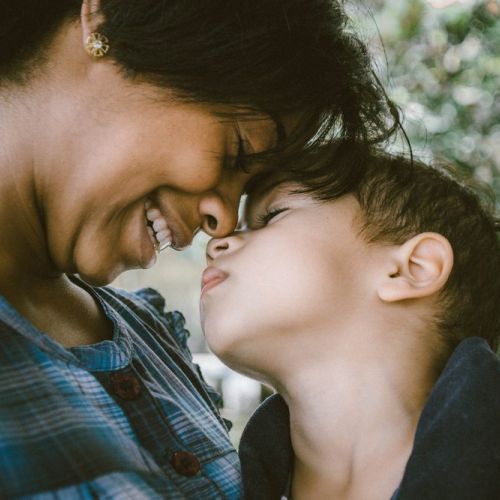Breaking the silence on men’s health: Clint’s testicular cancer journey
By Sylvia Lee | 10 May 2024

Clint with his daughters nearly 20 years after his testicular cancer diagnosis.
Clint Trofa considers himself extremely lucky. The 47-year-old father-of-three survived testicular cancer nearly 20 years ago and although he is currently living with chronic lymphocytic leukemia (CLL), he does not yet need treatment for it.
Just before his 30th birthday, Clint’s world was irrevocably changed when he was diagnosed with an aggressive form of testicular cancer. He had never heard of it until he watched a close friend endure “brutal” treatment for advanced testicular cancer only months prior to his own diagnosis.
Considered a young man’s disease, testicular cancer, while rare, is the most common non-skin cancer diagnosed in young men and people assigned male at birth aged 15-40. Clint's newfound awareness prompted him to do a testicular self-exam, which led to a devastating discovery.

“Looking back now, if I hadn’t seen my friend go through testicular cancer, I wouldn't have checked myself,” he shares. “As it turned out, I had a nasty cancer that consumed my whole testicle. It could have made its way through my body to my brain within weeks."
“My oncologist always reminded me how lucky I was. He said if my testicular cancer remained undetected, I would be gone in months. I wouldn't be here to tell my story today.”
‘I felt less of a man’: Life after testicular cancer treatment

Clint underwent surgery for testicular cancer, which had lasting effects.
In the early 1970s, testicular cancer was a death sentence for primarily young men in the prime of their life, who faced a 5% chance of survival. Half a century on, it is now a highly curable cancer with 5-year survival rate of 98%, largely due to the introduction of cisplatin-based chemotherapy.
Because Clint’s testicular cancer had been detected early, he did not have to follow the gruelling path of chemotherapy and radiotherapy. Still, he suffered the lasting effects of his orchiectomy (a surgery to remove one or both testicles), which can include reduced fertility, sexual dysfunction, hormonal disorders, psychological distress, and increased risk of developing a second cancer.
“There was so much going through my head. It sits in the shadows and affects so many parts of your life, a lot more than I thought it would,” he said. “It really hurt my self-esteem and affected my relationship with my partner at the time. I didn’t know if I could still have children. I felt less of a man, physically, after the operation.”
For 5 years, Clint regularly underwent CT scans and blood tests to monitor any signs of recurrence. He knew that as a testicular cancer survivor, he had a higher risk of developing cancer in his remaining testicle.
“You have that lump in your throat every time you walk in,” he remembers. “It felt like I’d been holding my breath for those 5 years, and it felt like a gigantic exhale when my doctor finally said to me: ‘It’s all over now. Go and enjoy your life.’ You don’t forget moments like that in life.”
Testicular cancer awareness: ‘It’s going to save lives’

Clint's dual experience with cancer has motivated him to fundraise and advocate for cancer research.
Today, Clint is a proud father. “I have three beautiful daughters, and my oldest is 18,” he said. “When I reflect on having testicular cancer 20 years ago, that’s three beautiful kids’ lives that wouldn’t be here if they hadn’t detected the cancer in time.”
“I’m very comfortable with myself today. But I felt embarrassed, and I didn’t know who to talk to. Being a guy, you tend to keep things in and not tell people. It’s not something you bring up when you catch up with a few mates.”
He urges other men to take charge of their health instead of thinking, “That’ll never happen to me.” This starts with normalising conversations about their reproductive health, which can break the stigma around testicular cancer and other male reproductive cancers.
“Raising awareness breaks the ice. If guys talk about this stuff, it’ll become more and more accepted. At the end of the day, it’s going to save lives.
“Hopefully, in years to come, doing self-exams will become a normal thing that guys do. If they catch this early, then they can live a fruitful life.”
Despite his shock diagnosis 4 years ago with a second cancer, chronic lymphocytic leukemia (CLL), Clint maintains a glass half-full attitude. “It’s a big part of who I am today. The challenges I’ve had in life have given me a lot of strength and gratitude for things that I used to take for granted.”
His dual experiences with cancer have led him to fundraising for Cure Cancer and becoming a cancer research advocate. With determination in his eyes, he is optimistic about the future of cancer research.
“I hope that no one must go through any type of cancer, but the reality is that it’s a part of our life today. We need to do more research to try to prevent, detect and fight cancer, as well as raise awareness.”
If you would like to support someone like Clint and help fund male reproductive cancer research, you can make a tax-deductible donation before 30th June.










